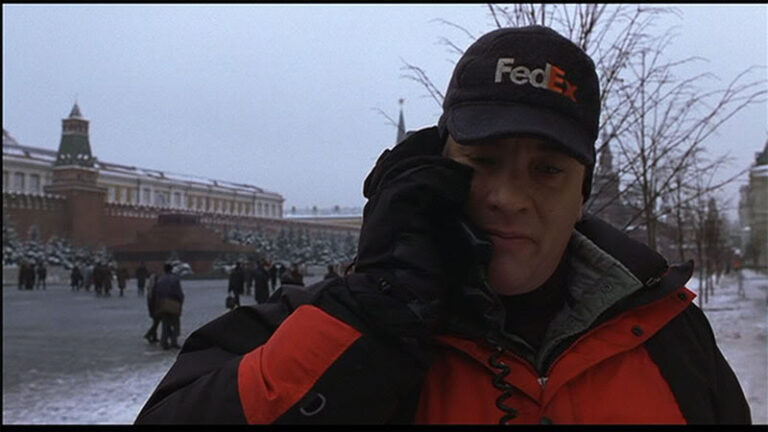Branded content is everywhere now.
I was watching a normal video on the New York Times website the other day, it finished and another video came on. I assumed this video was the next New York Times-produced video in the same category and I was viewing a playlist. And it was exactly that: a New York Times report on some Wall Street Banker who quit his job to become a triathlete. Oh yeah, side note, he also drives a beautiful new Lexus that they spent a lot of time talking about and the entire production of this video was actually paid for by (and served as an ad for) Lexus.
Nothing too egregious here. Most major news organizations now have branded content divisions. And I think news needs to explore new ways to make money.
But in the year 2000, one of my favorite movies of all time came out: Cast Away, directed by the remarkable Robert Zemeckis.
Watching it again for maybe the 8th time recently, I was struck by how the whole movie is a love story. It’s a love story between a man and a woman, a man and an inanimate object (Wilson, the volleyball) and, I’d argue, a man and an employer.
Yes, this man’s priorities change during the film–likely away from the prioritization of employer/work over family. But FedEx is always there and cast as this global private enterprise of incredible efficiency and professionalism. Granted one of their planes goes down and packages are lost but the protagonist writes at the end that a FedEx package “saved my life,” as he delivers it to a sculptor in Texas.
“The World on Time,” FedEx’s motto at the time is seen a number of times during the movie as well. And when Hanks is finally “recalled to life,” it seems FedEx is there for him in a significant way.
There’s even a joke at one point between Hank’s character and one of his co-worker chums about how if they didn’t hold themselves to this high standard of package delivery expedience they’d be just like the U.S. Post Office.
Given the current 2016 climate where brands are paying a lot of money I was willing to bet FedEx sponsored this whole thing so it was interesting to discover that according to this reporting from the Chicago Tribune back in 2001, FedEx didn’t pay a cent for any of this.
Takeaways: I don’t think branded content is going anywhere. As a result, the contemporary content consumer has to be more discerning and aware than ever before. That said, I also think publications need to hold themselves to some disclaimer standard. Nobody likes to feel they’ve been duped. I felt close to this on the New York Times website while watching the Lexus-sponsored content.
Perhaps disclaimers can be standardized in some way just like cigarette box warning labels–similar fonts and visibility standards so consumers know what to look for to clearly understand the origin and intention of a piece of content.
The holy grail for a brand is really what happened with FedEx in Cast Away back in 2000 but this is so uncommon. Still, maybe there are lessons here for brands: like that it’s okay to tell a story involving a brand that isn’t 100% positive and promotional. The authenticity this creates leaves a lasting, positive impression.
Side commentary on Cast Away: The Tom Hanks/Helen Hunt love story and chemistry in this movie is one of the best I’ve ever seen and I get very emotional watching it–even though I’ve seen it multiple times. Hunt is so authentic in her short presence in the movie and the whole thought of unintended distance and the very harsh imperfections of reality resonate. Probably no other movie in history has created a connection so strong in such a limited amount of screen time.
Then again, I also get emotional when Wilson floats off to sea, so …
It’s just a heroic story well told.


